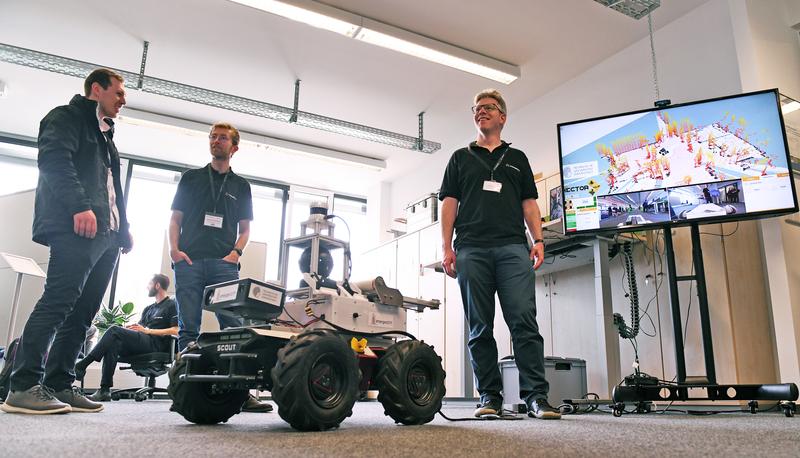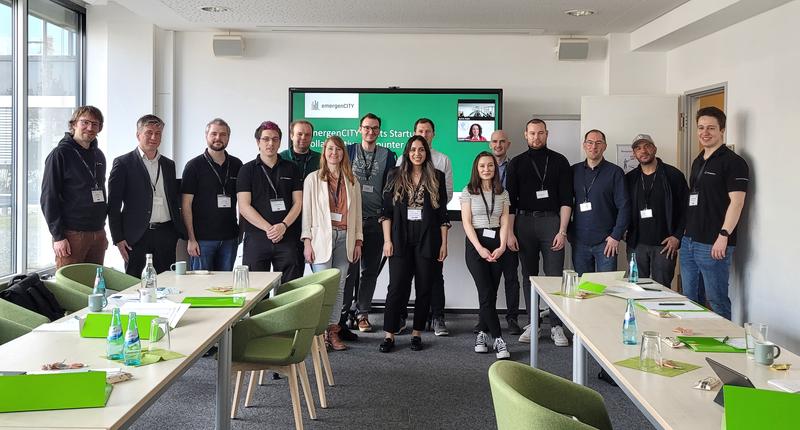Extreme weather or cyber-attack – what difference does it make for prevention and emergency response in digital infrastructures?
As part of this year’s emergenCITY Week, emergenCITY and the Schader Foundation invite to a joint conference on June 20. Prevention and coping strategies for outages caused by cyber-attacks and extreme weather events will be discussed from different perspectives.
With increasing digitization, technical problems or even cyberattacks on digitized infrastructures can lead to serious failures, resulting in, for example, restrictions in the supply of vital goods or a threat to public safety. Resilient design, i.e. the integrated adaptability of systems to various changing conditions, is a promising approach to create more robust infrastructures. On the one hand, it relies on preventive approaches, and on the other hand, it aims to ensure continuous supply in the event of a specific disruption that has occurred.
In terms of the situational response, it can make a difference whether a failure is caused by an extreme weather event (operational safety) or a cyber-attack (security). However, overlaps of both types of threats also occur, for example, when a cyberattack on personal data in a hospital endangers the operational security of patient care. Countermeasures may then be very different: responses that work in extreme weather conditions are often no longer sufficient in the case of cyberattacks. Furthermore, targeted attacks on critical infrastructures often have an added strategic significance beyond the mere disruptive effect.
The Hybrid Threats to Critical Infrastructures conference will therefore examine prevention and management approaches to outages caused by cyberattacks and extreme weather events from various points of view, including the perspectives of security agencies and companies, infrastructure operators, and the research community. An introduction to the topic will be given by Prof. Dr. Christian Reuter (Wissenschaft und Technik für Frieden und Sicherheit (PEASEC), TU Darmstadt) and further input will be provided by Dr. Nina Gerber (Industrial and Engineering Psychology, TU Darmstadt) towards the consideration of concrete similarities and differences between the two risk scenarios. In the subsequent panel discussion, Dr. Marco Ghiglieri (SICHER3 GmbH & Co. KG), Kirstin Scheel (Fraunhofer SIT, ATHENE-SecUrban), Jasmin Haunschild (PEASEC, emergenCITY, ATHENE-SecUrban) and Dr. Verena Zimmermann (Industrial and Engineering Psychology, TU Darmstadt, ATHENE-SecUrban, GRK) will discuss further, moderated by Christian Reuter.
20.06.2022 | 5:30 h to 7:00 pm Schader Forum | Goethestr. 2 | 64285 Darmstadt Registration for the conference via the Schader Foundation here (in German).
Further information as well as the program is available in German language on the website of the Schader Foundation and for further questions Tatiana Soto Bermudez is the contact person of the Schader Foundation.



